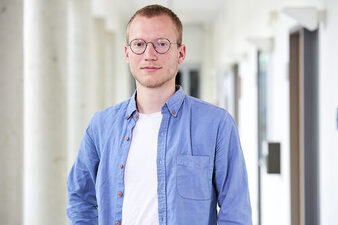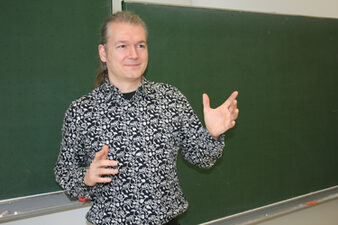About the project
SuPraStadt - Quality of life, participation and resource conservation through social diffusion of sufficiency practices in urban neighborhoods
How can urban districts be made sustainable and liveable? What can we as citizens, researchers and employees in administration, companies and organizations do for a sustainable and socially just transformation of society? The transdisciplinary research project SuPraStadt investigates the social diffusion of sufficiency practices with regard to a sustainable transformation of cities. The aim is to take into account residents' needs for high-quality urban spaces, access to resources, options for the use of goods and services and social participation.
In the urban district of Westerfilde in Dortmund, sufficiency measures are to be (further) developed and implemented in different social milieus together with the "nordwärts" project, the housing company Vonovia and local residents. The collaboration with the digital neighborhood platform "nebenan.de" will investigate the influence of digital information and communication technologies on the social diffusion of sufficiency practices.
The research focuses on the fields of housing, open space and mobility. The methodical approach in real-world laboratories enables sufficiency practices and their social diffusion to be analyzed and evaluated as an overall process with regard to their ecological and social impact.
The SuPraStadt project can build on the research work of the "DoNaPart" project in the Dortmund Westerfilde real-world laboratory, which was completed in October 2019.
What is sufficiency?
In addition to efficiency and consistency strategies, sufficiency strategies are possible ways to achieve greater ecological sustainability. Sufficiency stands for the reduction of the use of resources in the satisfaction of needs, which makes it possible to remain within the limits of the earth's ecological carrying capacity. Sufficiency practices can be on an individual level, e.g. the shared use of space or goods (e.g. car sharing, urban gardening), the renunciation or reduction of goods (e.g. meat consumption), the renewal of the useful life of goods (e.g. repair cafés) or home production (e.g. jam making). Such sufficiency measures should lead to ecologically sustainable changes in consumption patterns, everyday routines and social and cultural practices.
Research partners
ifeu - Institute for Energy and Environmental Research Heidelberg GmbH https://www.ifeu.de/projekt/suprastadt/
Institute for Social-Ecological Research (ISOE), Frankfurt am Main https://www.isoe.de/nc/forschung/projekte/project/suprastadt/
Project partner
City of Dortmund, Office for Mayor's and Council Affairs, Ombudsman's Office for Citizens' Interests https://www.dortmund.de/de/rathaus_und_buergerservice/buergerinteressen/ombudsstelle/start_os/index.html
City of Heidelberg - Office for Environmental Protection, Trade Inspection and Energy https://www.heidelberg.de/hd/HD/Rathaus/Amt+fuer+Umweltschutz_+Gewerbeaufsicht+und+Energie.html
Residence Collegium Academicum e.V. https://collegiumacademicum.de/%20rel=/
Integrated Urban Development faculty of ProjektStadt, brand of the Nassauische Heimstätte/Wohnstadt Group https://www.naheimst.de/
Practice partner
Transition Town Heidelberg e.V.
BUND Landesverband Baden-Württemberg e.V., Heidelberg district group
konvisionär - Association for ecological living in community e.V.
HageButze GmbH, Heidelberg
District association Bahnstadt e.V., Heidelberg
Project "nordwärts" Dortmund
Vonovia Immobilienservice GmbH, Dortmund
nebenan.de - Good Hood GmbH
Kelsterbach City Council
Sponsor
Federal Ministry of Education and Research (BMBF)(https://www.bmbf.de/)(Opens in a new tab)
Funding program / Research program
FONA - Research for Sustainable Development
Contact & Team
Contact person
Management
Prof. Marcel Hunecke, Dr.
There will be no consultation hours during my sabbatical from 01.09.24 to 31.08.25.


